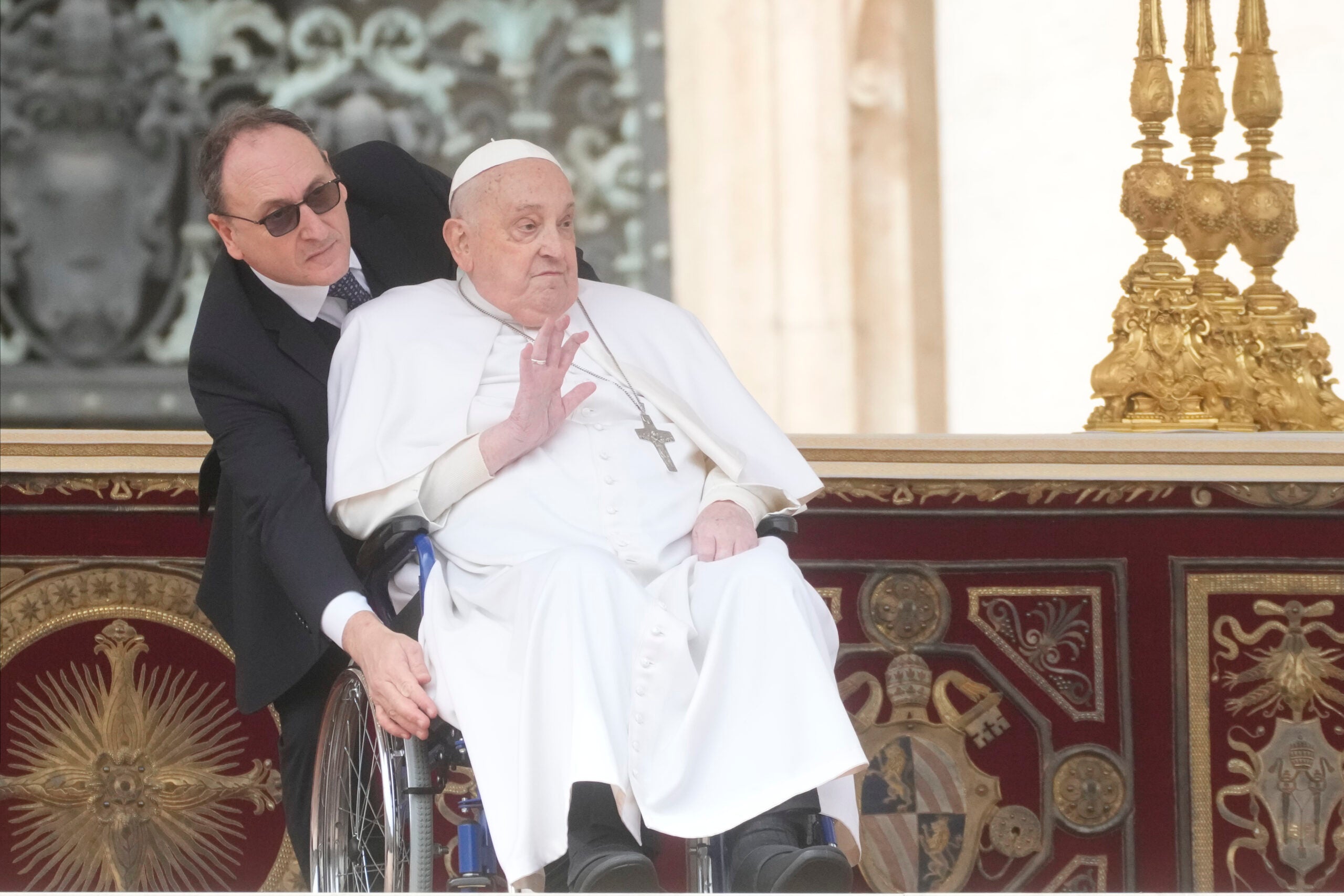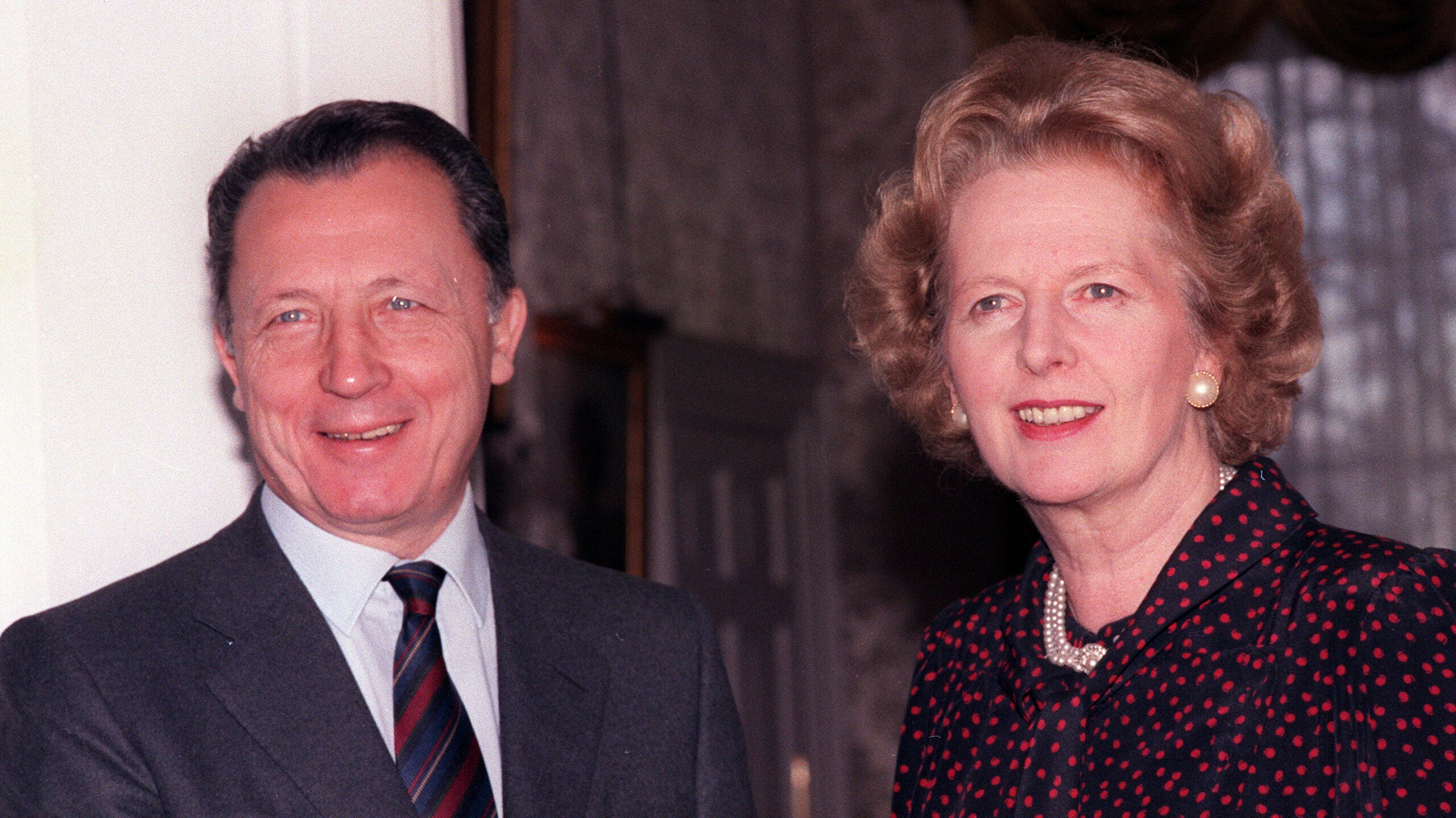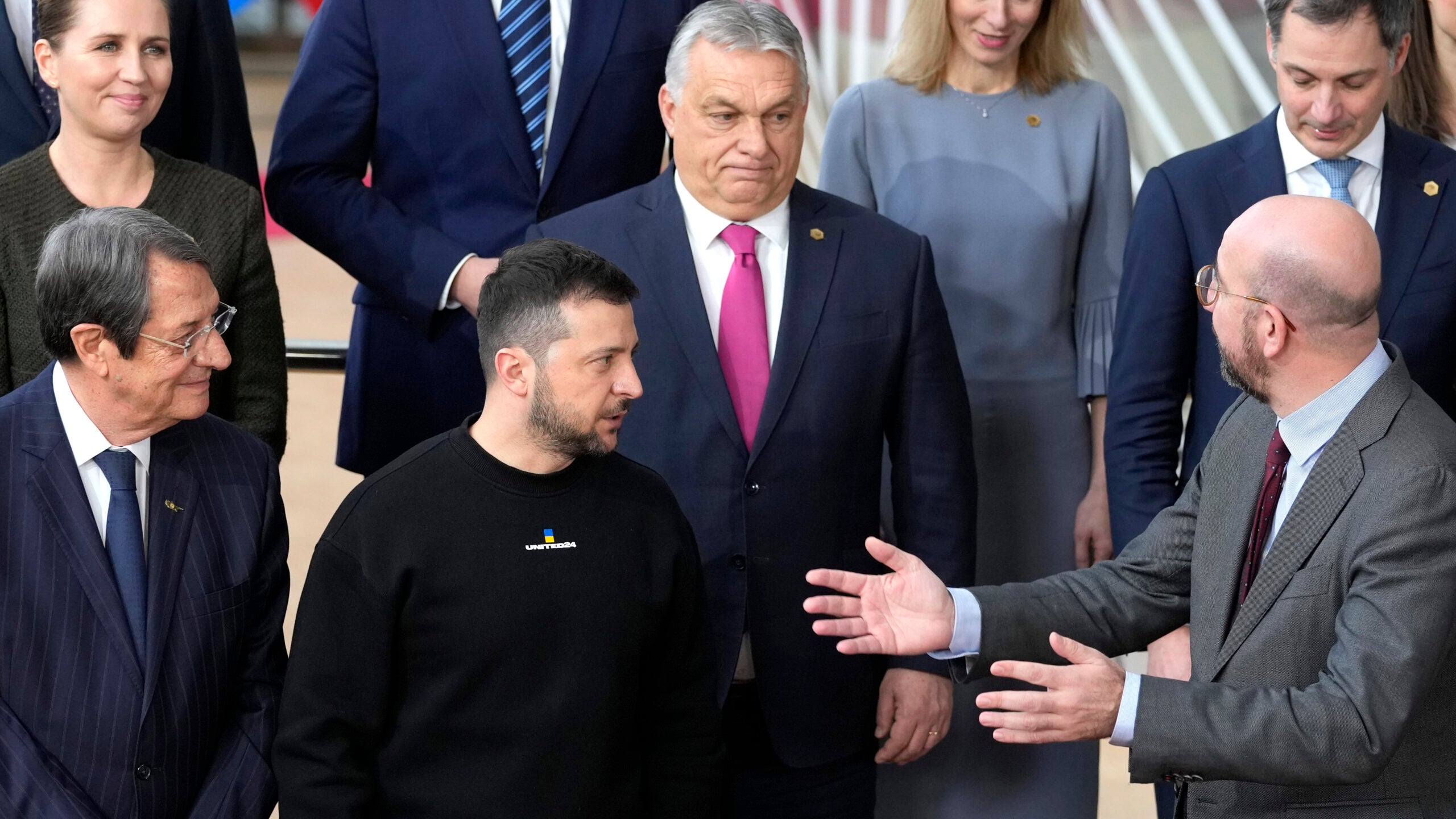BRUSSELS — European Union leaders and top officials hailed on Wednesday a major breakthrough in talks on new rules to control migration, but critics said the reforms will weaken the rights of asylum-seekers and encourage more morally dubious deals with countries that people leave to get to Europe.
After overnight talks, visibly exhausted EU lawmakers emerged expressing relief that agreement was found “on the core political elements” of the Pact on Asylum and Migration — a major overhaul of rules that many hope will address the challenges posed by migrant arrivals over the last decade.
“It’s truly a historic day,” said European Parliament President Roberta Metsola, flanked by lawmakers responsible for the key parts of the agreement. With migration likely to be a hot campaign issue ahead of EU elections next June, Metsola said, it was vital to make a breakthrough.
News with a little more humanity
WPR’s “Wisconsin Today” newsletter keeps you connected to the state you love without feeling overwhelmed. No paywall. No agenda. No corporate filter.
“Let’s not underestimate the risk if we had not reached such a deal,” she told reporters. “This means, hopefully, that member states will feel less inclined to reintroduce internal borders because the influx is being managed.”
The pact was touted as the answer to the EU’s migration woes when it was made public in September 2020. The bloc’s old rules collapsed in 2015 after well over 1 million people arrived in Europe without authorization. Most were fleeing war in Syria or Iraq.
But little progress was made on the pact as the member states bickered over which country should take charge of migrants when they arrive and whether other countries should be obligated to help.
In recent weeks, negotiators bridged differences on rules concerning the screening of migrants arriving without authorization -– facial images and fingerprints will be quickly taken, including from children from the age of 6 -– and the ways that this biometric data can be used.
Agreement was also found on which EU countries should handle asylum applications, the procedures for doing so, and what kinds of mandatory support other countries must provide to nations struggling to cope with migrant arrivals, notably in “crisis situations.”
In a post on X, formerly Twitter, the European Council on Refugees and Exiles – a migrant rights umbrella body – slammed the rules as “Byzantine in their complexity and Orban-esque in their cruelty,” a reference to Hungarian Prime Minister Viktor Orban, who erected razor-wire fences to keep migrants out.
But lawmakers were more sanguine.
Noting that he and fellow negotiators had “not slept a wink in the last couple of days,” Spanish Socialist EU lawmaker Juan Fernando Lopez Aguilar explained that merely agreeing a deal could be seen as a victory, and that “no one can come out of this negotiation entirely happy.”
German Chancellor Olaf Scholz described it as “a very important decision” that will “relieve the burden on countries that are particularly affected — including Germany.”
Spanish Prime Minister Pedro Sánchez told his country’s parliament that the pact “will allow us to have an improved, more humane and better coordinated management of our frontiers and migration flows.”
Dutch caretaker Prime Minister Mark Rutte said the deal improves “control over migration” with “better asylum procedures at the external borders of the EU.” Far-right lawmaker Geert Wilders aims to replace Rutte after sweeping to victory in last month’s elections on an anti-migration platform.
The breakthrough was announced just after the French parliament approved a divisive immigration bill intended to strengthen France’s ability to deport foreigners considered undesirable. The vote prompted a heated debate after the far-right decided to back the measure.
Wednesday’s EU deal is not definitive though. For the entire reform pact to enter force, officials and lawmakers have said, a final agreement on all its 10 parts must be reached by February, and then transcribed into law before the June 6-9 elections.
In recent years, as hope for reforms languished, the EU focused on outsourcing the challenge by offering economic, political and travel incentives to countries that people leave or transit to get to Europe.
A deal with Tunisia, where authorities have been accused of dumping migrants in the desert, was a recent example. Italy has also concluded a bilateral agreement to send people to Albania, but that faces legal challenges. The EU is in talks with Egypt, Iraq, Morocco and Nigeria, among others.
Rights groups warned that Wednesday’s agreement will only entrench that kind of thinking.
Eve Geddie, Director of Amnesty International’s European Institutions Office, said that it “will set back European asylum law for decades to come,” and “cause more people to be put into de-facto detention at EU borders, including families with children and people in vulnerable situations.”
“States will be able to simply pay to strengthen external borders, or fund countries outside the EU to prevent people from reaching Europe,” Geddie added.
Oxfam’s EU migration expert Stephanie Pope worried that the pact would encourage “more detention, including of children and families in prison-like centers. They have also slammed the door on those seeking asylum with substandard procedures, fast-tracked deportation and gambled with people’s lives.”
The secretary general of the Caritas Europa charity group, Maria Nyman, said the deal shows that EU countries “prefer to shift their asylum responsibility to non-EU countries, prevent arrivals and speed up return, exposing migrants to human rights violations.”
9(MDAyMjQ1NTA4MDEyMjU5MTk3OTdlZmMzMQ004))
© Copyright 2025 by NPR. To see more, visit https://www.npr.org.9(MDAyMjQ1NTA4MDEyMjU5MTk3OTdlZmMzMQ004))







